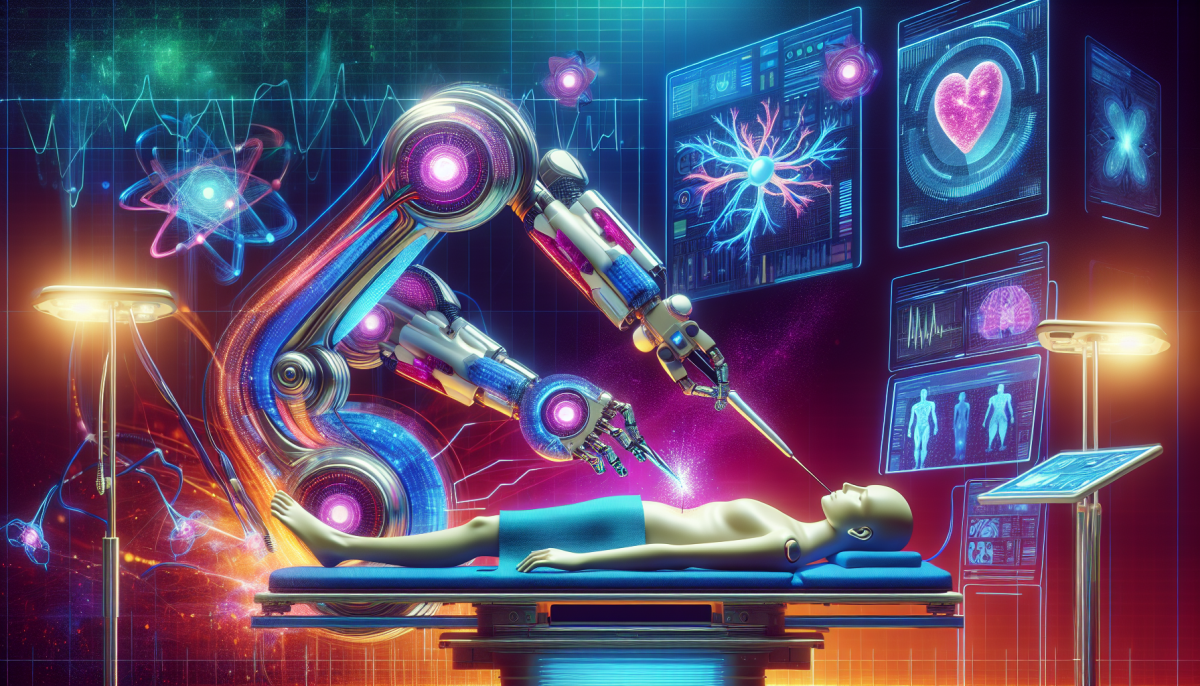AI is shaking things up in healthcare, and it's exciting to see how it's improving patient care! Imagine walking into your doctor's office, and instead of spending ages in the waiting room, your doctor already has all the information they need at their fingertips. AI algorithms can analyze your medical history, previous tests, and even lifestyle choices to help doctors make faster, more informed decisions.
One of the coolest ways AI is changing patient care is through predictive analytics. This means that doctors can use AI to spot patterns that might indicate potential health issues before they become serious. For instance, if your data shows that you're at risk for certain conditions, your doctor can intervene early, allowing for better outcomes and possibly saving lives.
Another big win for patients is personalized treatment plans. With AI, doctors can analyze a vast amount of data from various sources, including your genetic information, to tailor treatments just for you. This means you’re not getting a one-size-fits-all solution; instead, you’re receiving specialized care that aligns with your unique needs.
Lastly, AI-powered health apps and chatbots are making healthcare more accessible. They can answer questions, remind patients to take medications, and even help schedule appointments. This accessibility means that people can get the help they need when they need it, which can significantly improve overall health.
The Benefits of AI in Diagnostics
AI is shaking things up in the world of medical diagnostics, and the benefits are hard to ignore. First off, let’s talk speed. AI can analyze medical images like X-rays or MRIs in a fraction of the time it would take a human. This means quicker diagnoses, allowing doctors to start treatment sooner. Imagine getting results back in minutes instead of days—pretty amazing, right?
Next up is accuracy. AI systems are trained on massive amounts of data and can identify patterns that might slip past a human eye. This reduces the chances of misdiagnosis and ensures that patients receive the right treatment for their conditions. It’s like having a super-smart assistant that never gets tired!
Another cool benefit is personalization in healthcare. AI helps in tailoring treatments to individual patients based on their unique conditions and histories. This means more effective care and better outcomes. It’s all about giving each patient the attention they deserve without overwhelming doctors with too much information.
Finally, there’s the potential for cost savings. By improving efficiency and accuracy, AI can help reduce the overall costs of healthcare. Fewer repeat tests and better-targeted treatments can lead to significant savings for health systems, which is a win-win for everyone involved.
Streamlining Workflows with Technology
In today's fast-paced healthcare environment, efficiency is key. Leveraging technology can drastically streamline workflows, allowing healthcare providers to focus more on patient care and less on administrative tasks. Tools powered by AI can handle repetitive processes, making life a lot easier for everyone involved.
Consider how appointment scheduling has evolved. With AI-driven systems, patients can book, change, or cancel appointments without wasting hours on the phone. These systems send reminders too, reducing no-shows and making the whole process smoother for both patients and administrators.
Then there’s the management of patient records. Digital solutions can automatically update and organize patient information, ensuring that data is accurate and up-to-date. This means healthcare professionals spend less time searching for paperwork and more time treating their patients.
AI can even help with diagnostics. Machine learning algorithms can analyze medical images and assist with early detection of diseases. This not only speeds up the diagnostic process but also enhances accuracy, ultimately leading to better patient outcomes.
By integrating these technologies, healthcare providers can streamline their workflows significantly. It reduces the administrative burden, allowing for a more efficient and patient-centered approach to care.
Future Trends in Healthcare AI
As we dive deeper into the world of healthcare, artificial intelligence is stepping in to shape the future in exciting ways. One trend we can expect to see is the growth of predictive analytics. This means using AI to analyze patient data and predict potential health issues before they even arise. It's like having a health crystal ball that helps doctors identify risks early on!
Another area where AI is making a big impact is in personalized medicine. Imagine treatments tailored specifically to your genes or health history. With AI, it's becoming more achievable. This technology can help doctors determine which medications or treatments will work best for individual patients, making healthcare more effective and targeted.
On the administrative side, AI is streamlining processes that take valuable time away from patient care. From scheduling appointments to managing medical records, AI tools can automate mundane tasks. This means healthcare professionals can focus more on what truly matters: their patients.
We’re also likely to see AI improving telemedicine experiences. With more people opting for remote consultations, AI can assist by analyzing patient symptoms in real time and providing instant recommendations. This will not only enhance the patient experience but also help healthcare providers make quicker, more informed decisions.



